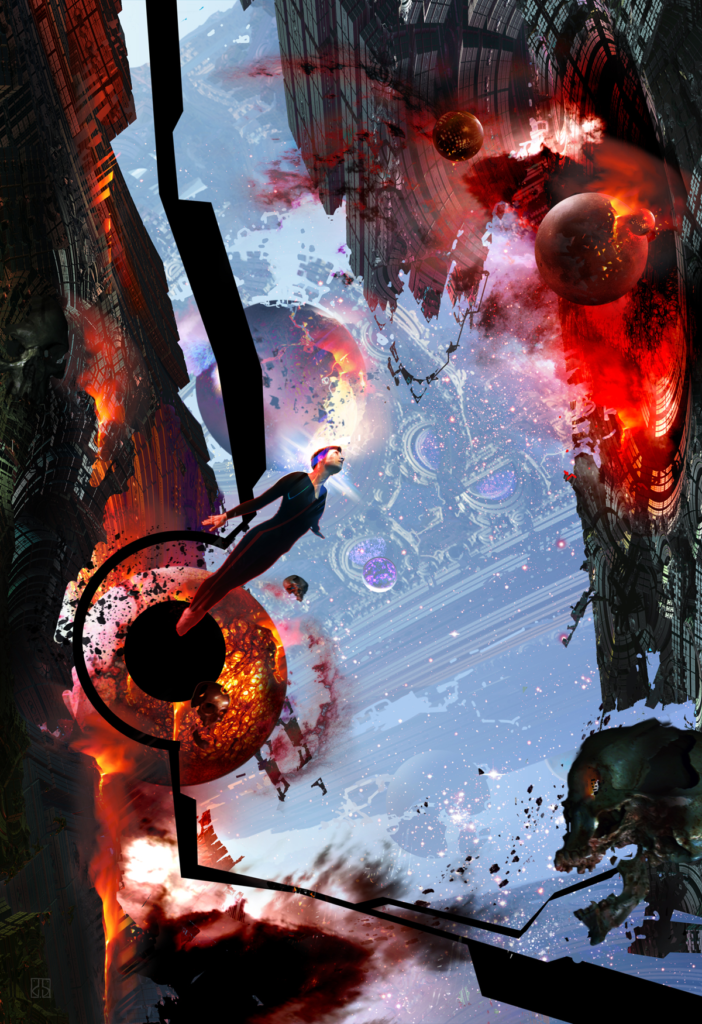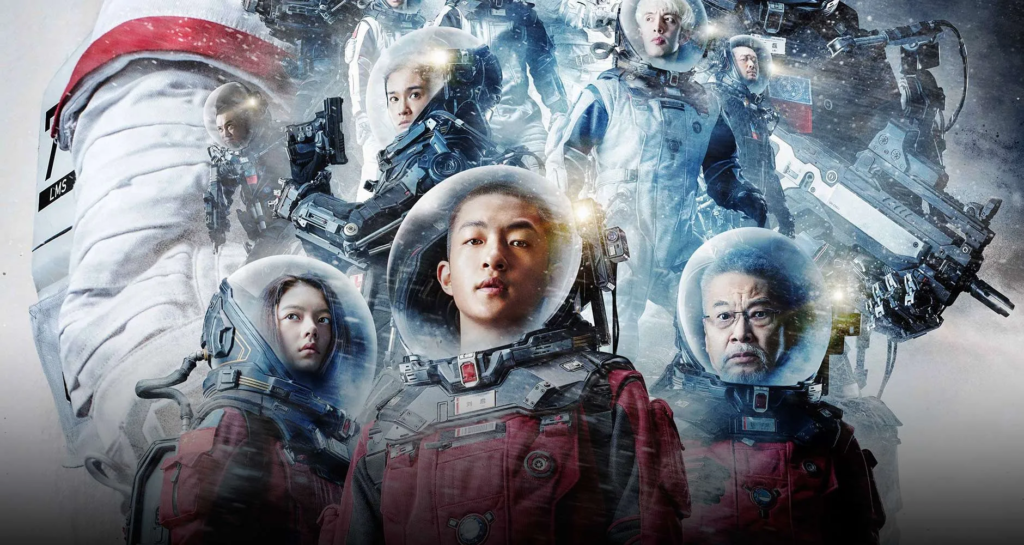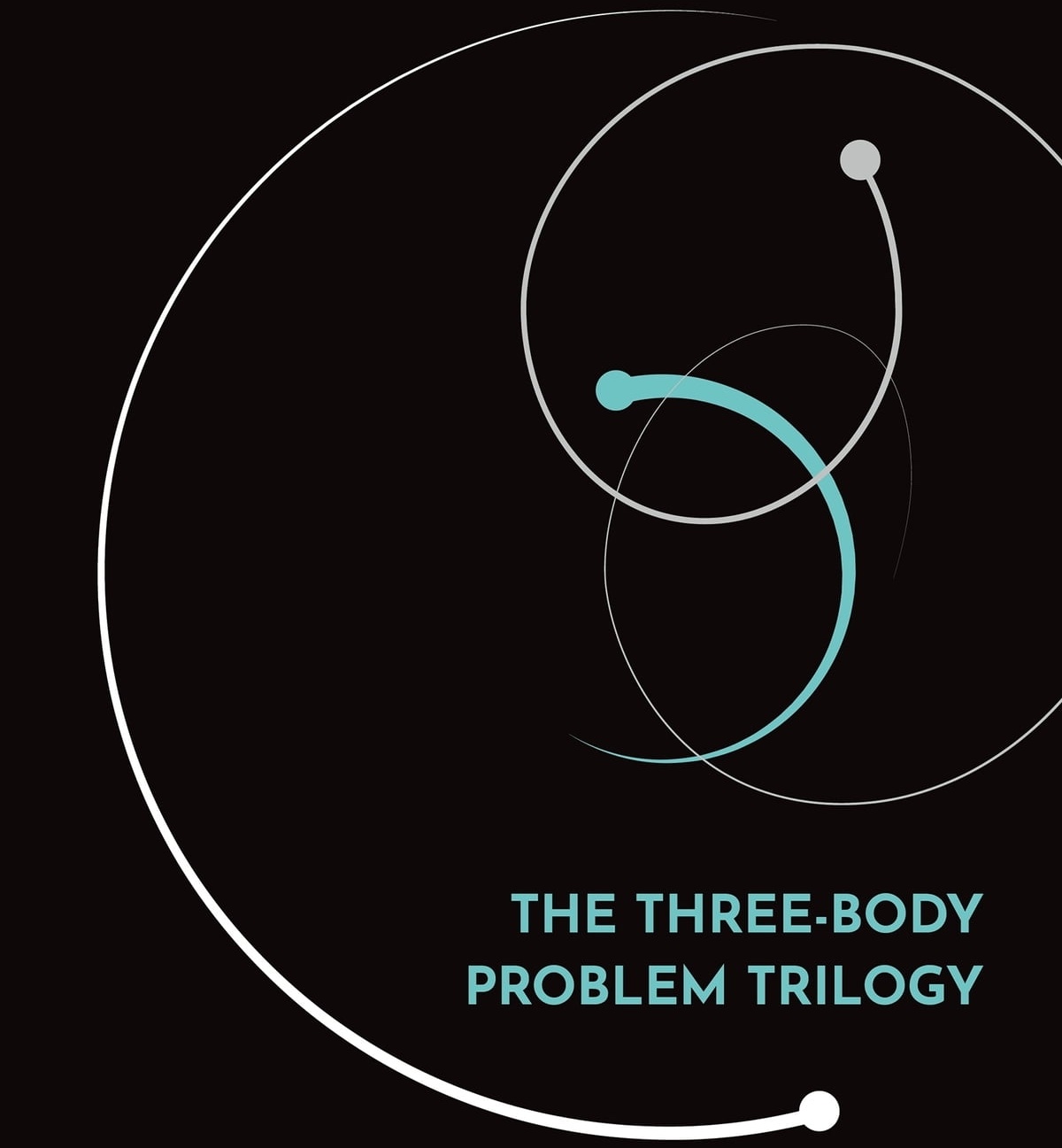Unlocking the Universe through the Eyes of China’s Sci-Fi Maestro
In the boundless cosmos of science fiction literature, few names shine as brightly as Liu Cixin’s. With his visionary storytelling, Liu has catapulted Chinese science fiction onto the global stage. From his awe-inspiring narratives to his cultural impact, Liu Cixin has become a luminary in the world of speculative fiction. Join us on a journey through the vast expanse of Liu’s literary universe, exploring his genres, key books, recurring themes, and the profound cultural influence of his work.
Genres: Beyond the Stars
Liu Cixin’s storytelling prowess transcends boundaries and defies categorization. While he is primarily known for his works in science fiction, his writing encompasses a spectrum of sub-genres within the broader field. Here’s a glimpse into the diverse worlds Liu has woven through his narratives:
1. Hard Science Fiction
At the heart of Liu Cixin’s writing lies a deep respect for the laws of science. His meticulous attention to scientific accuracy distinguishes him as a luminary in the world of hard science fiction. Readers are treated to meticulously crafted, scientifically grounded universes, where even the most fantastical concepts are explained with meticulous detail. Works like “The Three-Body Problem” exemplify his commitment to weaving science into his narratives seamlessly.
2. Space Opera
Liu’s stories often soar to epic proportions, spanning galaxies and eons. His space operas like “The Dark Forest” and “Death’s End” envelop readers in sprawling, interstellar conflicts and cosmic mysteries. In these works, he explores the grandeur of space and the implications of humanity’s place in the universe.
3. Alternate History
In addition to his exploration of the cosmos, Liu occasionally delves into alternate history. His novella “The Wandering Earth” envisions a future Earth, transformed into a colossal spacecraft, hurtling through space to escape an aging sun. This unique take on Earth’s future is a testament to Liu’s versatility as a storyteller.
4. Near-Future Speculation
Liu also grapples with the pressing issues of our times, offering thought-provoking insights into the near-future. His stories, such as “Supernova Era,” contemplate the consequences of rapid technological advancements and their impact on society and humanity’s evolution.
Key Books: Portals to Imagination
Liu Cixin’s bibliography is a treasure trove of imaginative brilliance, each work offering a unique perspective on the cosmos and human existence. While it’s impossible to encompass the entirety of his literary contributions, here are some of the key books that have left an indelible mark on the world of science fiction:
1. The Three-Body Problem (2008)
This is the novel that catapulted Liu Cixin to international acclaim. “The Three-Body Problem” introduces readers to the enigmatic world of Trisolaris, a planet in a triple-star system facing imminent destruction. Liu masterfully combines elements of astrophysics, sociology, and political intrigue to craft a mesmerizing tale of first contact between humanity and an alien civilization.
2. The Dark Forest (2008)
Continuing the story from “The Three-Body Problem,” this sequel explores the “dark forest” theory of cosmic sociology, where civilizations hide in fear of attracting the attention of predatory extraterrestrial beings. Liu’s narrative brilliance is on full display as he weaves a complex web of intrigue and survival in the face of an existential threat.
3. Death’s End (2010)
The concluding volume of the “Remembrance of Earth’s Past” trilogy, “Death’s End” ventures into the furthest reaches of the universe and the ultimate fate of humanity. Liu takes readers on a breathtaking journey through time and space, pondering the meaning of existence and the destiny of our species.

4. The Wandering Earth (2000)
In this novella, Liu paints a picture of a future Earth transformed into a colossal spaceship, roaming the cosmos. The story explores themes of human resilience, adaptability, and the will to survive in the face of a dying sun.

5. Supernova Era (2003)
“Supernova Era” takes readers to a world where children must navigate a society devoid of adults after a cosmic event alters the fabric of reality. Liu’s examination of the consequences of technology on young minds is a haunting reflection on the potential pitfalls of progress.
Key Themes: The Cosmic Tapestry
Liu Cixin’s works are not only known for their scientific rigor but also for their profound exploration of recurring themes that resonate with readers across cultures. These themes serve as a thread that weaves his narratives together:
1. Fermi Paradox and the Dark Forest
A central theme in Liu’s works is the Fermi Paradox, which ponders why, given the vastness of the universe, we have yet to encounter extraterrestrial civilizations. Liu’s interpretation, the “dark forest” theory, posits that advanced civilizations remain silent and hidden out of fear of attracting predatory alien species. This concept adds a layer of existential dread to his stories.
2. The Cosmic Perspective
Liu’s narratives encourage readers to contemplate the universe from a cosmic perspective. He often juxtaposes humanity’s insignificance in the grand scheme of the cosmos with our boundless curiosity and ambition. This theme invites reflection on our place in the universe and the consequences of our actions on a cosmic scale.
3. Ethics of Survival
In the face of existential threats, Liu’s characters grapple with complex ethical dilemmas. Whether it’s the decision to reveal Earth’s location to alien civilizations or the moral implications of survival at any cost, Liu’s exploration of ethics adds depth and nuance to his storytelling.
4. The Impact of Technology
Liu’s works serve as cautionary tales about the unchecked advancement of technology. He delves into the potential consequences of rapid scientific progress, such as the creation of advanced weaponry or the transformation of societies.
Reviews: Global Acclaim
Liu Cixin’s works have received widespread acclaim from both readers and critics around the world. His unique blend of rigorous science, profound themes, and captivating storytelling has garnered a legion of devoted fans. Here’s a glimpse of the global recognition his work has received:
“A Landmark in Science Fiction” – The New Yorker
Liu’s “The Three-Body Problem” was hailed by The New Yorker as a “landmark in science fiction.” The magazine praised his ability to combine complex scientific concepts with a riveting narrative, making it accessible to a wide range of readers.
“A Masterpiece of the Genre” – The Guardian
The Guardian described “The Three-Body Problem” as a “masterpiece of the genre.” The publication lauded Liu’s intricate world-building and his exploration of the Fermi Paradox, calling it “mind-expanding.”
“A Visionary Epic” – The Wall Street Journal
The Wall Street Journal praised the entire “Remembrance of Earth’s Past” trilogy, labeling it a “visionary epic.” They commended Liu’s ability to blend hard science with profound philosophical questions, making it a compelling read for both science enthusiasts and literary connoisseurs.
“Science Fiction at Its Best” – NPR
NPR hailed Liu Cixin’s work as “science fiction at its best.” They noted his ability to create a sense of wonder and awe, transporting readers to distant galaxies while addressing profound questions about the nature of humanity.
Cultural Impact: A Bridge Across Worlds
Liu Cixin’s influence extends far beyond the pages of his books. His impact on Chinese and global culture is immeasurable, forging connections between different worlds and perspectives:
Elevating Chinese Science Fiction
Liu’s success has played a pivotal role in elevating Chinese science fiction to international prominence. His work has inspired a new generation of Chinese authors to explore the genre, resulting in a flourishing of creativity within the Chinese literary scene.
A Gateway to Chinese Culture
For many readers in the West, Liu’s books serve as a gateway to Chinese culture and history. Through his narratives, readers gain insights into China’s rich cultural tapestry, its history, and its unique perspectives on science and technology.
Cross-Cultural Collaboration
Liu’s work has also paved the way for cross-cultural collaborations in the world of literature and film. His books have been adapted into various media, sparking international partnerships that bridge cultural divides.
Similar Books and Authors: Exploring the Cosmos
If you’ve been captivated by Liu Cixin’s storytelling, you’ll likely find these books and authors equally enthralling:
1. Arthur C. Clarke
Arthur C. Clarke, often hailed as one of the “Big Three” science fiction writers alongside Isaac Asimov and Robert A. Heinlein, shares Liu’s passion for hard science fiction. His “Space Odyssey” series, which includes “2001: A Space Odyssey,” is a masterpiece of the genre, exploring humanity’s encounters with advanced extraterrestrial life.
2. Isaac Asimov
Isaac Asimov, a luminary in the world of science fiction, is known for his extensive body of work, including the “Foundation” series and the “Robot” series. Like Liu, Asimov delves into the ethical implications of advanced technology and the destiny of humanity.
3. Greg Egan
Greg Egan is renowned for his hard science fiction and exploration of complex scientific concepts. His novel “Permutation City” is a mind-bending exploration of virtual reality, consciousness, and the nature of reality itself.
4. Stanisław Lem
Stanisław Lem, a Polish science fiction giant, is known for his philosophical and speculative works. His novel “Solaris” is a profound exploration of human consciousness and the mysteries of an alien ocean.
5. Neal Stephenson
Neal Stephenson is celebrated for his intricate world-building and thought-provoking narratives. His novel “Seveneves” explores the survival of humanity after a cataclysmic event and the challenges of rebuilding civilization.
Liu Cixin
Liu Cixin’s contributions to science fiction are not only remarkable but also transformational. His ability to meld rigorous science with visionary storytelling has elevated the genre to new heights and fostered a deeper appreciation for the cosmos and our place within it. As we continue to explore the mysteries of the universe, Liu Cixin’s works serve as a guiding light, illuminating the path of discovery and wonder.
External Links:
- Liu Cixin’s Official Website
- The New Yorker’s Review of “The Three-Body Problem”
- The Guardian’s Analysis of Liu Cixin’s Work
- The Wall Street Journal’s Review of the “Remembrance of Earth’s Past” Trilogy
- NPR’s Feature on Liu Cixin
(Note: The external links provided are for reference purposes only and may be subject to change.)


